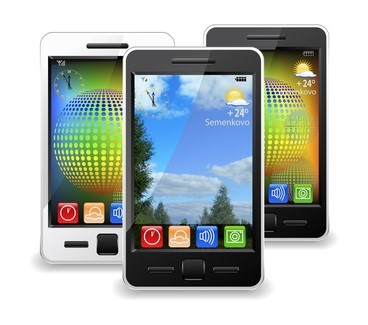
These days, it seems like everyone has a high tech, feature-rich mobile phone. No matter where you go, chances are you will see someone with their eyes on their smartphone. Some people claim that the prolific use of mobile phones shortens attention spans and decreases learning ability. Others say that having such a wealth of interactive, up-to-the-minute information at their fingertips allows teens to learn more efficiently. Though the dangers of mobile phone use by teens have been noted, it is clear that they are here to stay. So, what should you know about how mobile phones are changing the way that teens learn, for both better and worse?
Interactivity
-
Printed texts are no longer the standard by which many teenage students learn most effectively. Instead, students have become accustomed to the interactive learning experience provided by mobile smartphones. There really is no limit to the level of interactivity provided by e-books. Students can look up definitions for words instantly, change the size of text to increase readability, follow in-text links to learn further information on a subject that particularly interests or confuses them, and view pictures or videos that reinforce or elaborate upon the subject at hand.
-
The advent of interactive texts is a mostly beneficial feature provided by smartphones. The downside, if you would call it that, is that standard printed texts no longer stimulate many students, which is a problem for students who don't have mobile phones, and for school districts that cannot afford to provide interactive reading devices for students. As the New York Times reports, though, most schools are moving away from printed texts and toward the use of interactive learning devices. It seems that it will only be a matter of time before textbooks are a thing of the past.
A Wealth of Information
-
With mobile phones, teens can now research in minutes information that would have taken hours to find searching in a library. This is one of the double-edged sword features of modern smartphones. To the positive, students can theoretically learn more information more quickly with the ability to search the web on their phones. The problem that can arise is that having instant access to such information can lead to a lack of retention. There is something to be said for the effort required by a student to search for information in a library as a method of reinforcement in and of itself.
-
There is also the danger of students learning from less than reputable sources when searching for information on their phone. Sometimes, it is just faster to look something up on Wikipedia than take the time and effort to vet a more scholarly, relevant source of information. That is why it is so important for students to be taught how to research effectively using the web. As long as they are taught well, the ability for students to find information quickly can be a major benefit.
Dangers and Drawbacks
-
In-class distraction through the use of smartphones is one of the largest concerns in relation to mobile phones and teen education. Improperly monitored, it is easy for a student to drift away in class and miss an entire lesson. Between web browsing, texting, social media, and gaming apps, there are many temptations that can draw students away from learning. There are a combination of solutions for this particular drawback. The first is technological, as programs are available that can block certain apps and websites so that the student can only focus on education while in class. The second is a common-sense solution that teachers have been practicing for years – careful monitoring of student activities during class.
-
Another potential danger of smartphone use is the possibility that it decreases the attention span of teens. This happens mostly through over-stimulation. Teens are used to a constant, evolving, interactive stream of information and entertainment, which can make them less likely to be engaged when a subject calls for more traditional means of education. The other common dangers of smartphone use, like sexting, cyber bullying and stalking are always a concern when teens use mobile phones, whether in the classroom or in other settings.
Though modern mobile phones offer something of a mixed bag when it comes to pros and cons, the only thing you can really do is embrace their use as inevitable. By embracing the use of mobile phones in education, and monitoring your teen's smartphone use through technological and traditional means, you stand a good chance of turning your teen's mobile phone into a valuable tool for learning. The same goes for educators, who can increase student engagement and provide unique learning opportunities through technology. Overall, mobile phones should be a net gain for teen education in the long run, as long as they are properly used and monitored.
Parenting has become increasingly more complicated with cell phones and computers. Read about how you can keep up with it all in our eBook! Download “Digital Parenting: The Essential Guide to Raising Connected Kids” now.



